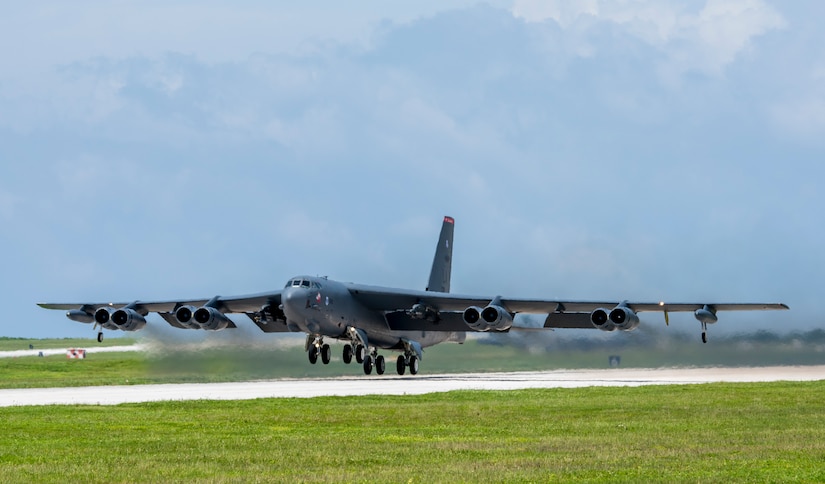JOINT BASE PEARL HARBOR-HICKAM, Hawaii -- Air Force B-52H
Stratofortress bombers assigned to the 96th Expeditionary Bomb Squadron,
Andersen Air Force Base, Guam, conducted two sequential bilateral training
missions to Australia as part of exercise Pitch Black 18.
Pitch Black, a biennial exercise designed to enhance flight
operations and proficiency between participating nations, provided an
opportunity for U.S. bombers to integrate with Australia’s defense force to
maintain the proficiency between the two nations. These routine training
missions were in support of U.S. Indo-Pacific Command’s Continuous Bomber
Presence Program.
“The 96th Expeditionary Bomb Squadron is excited to be
participating in exercise Pitch Black,” said Air Force Maj. Jonathan Radtke,
96th EBS mission planner. “This training is crucial to our allies’
interoperability and stability within the Indo-Pacific theater. This realistic
training gives our crews the unique opportunity to improve their tactics,
techniques, and procedures in one of the largest training airspaces in the
world."
During the missions, the B-52s integrated with Royal
Australian Air Force and other Australian forces and conducted training Aug. 6
and 13 near Royal Australian Air Force Base Tyndall, Australia.
U.S.-Australian ‘Mateship’
Sequenced missions with Australia highlight the 100 years of
“mateship” between the two nations, emphasizing bonds that date back to World
War I. The U.S. and Australia have a longstanding history of maintaining
regional stability by demonstrating the strength of their alliance and
military-to-military partnership.
The routine employment of Continuous Bomber Presence
missions is in accordance with international law and is vital to the principles
that are the foundation of the rules-based global operating system, officials
said, adding that these missions are intended to maintain the readiness of U.S.
forces and are a key component to improving combined and joint service
interoperability.









No comments:
Post a Comment